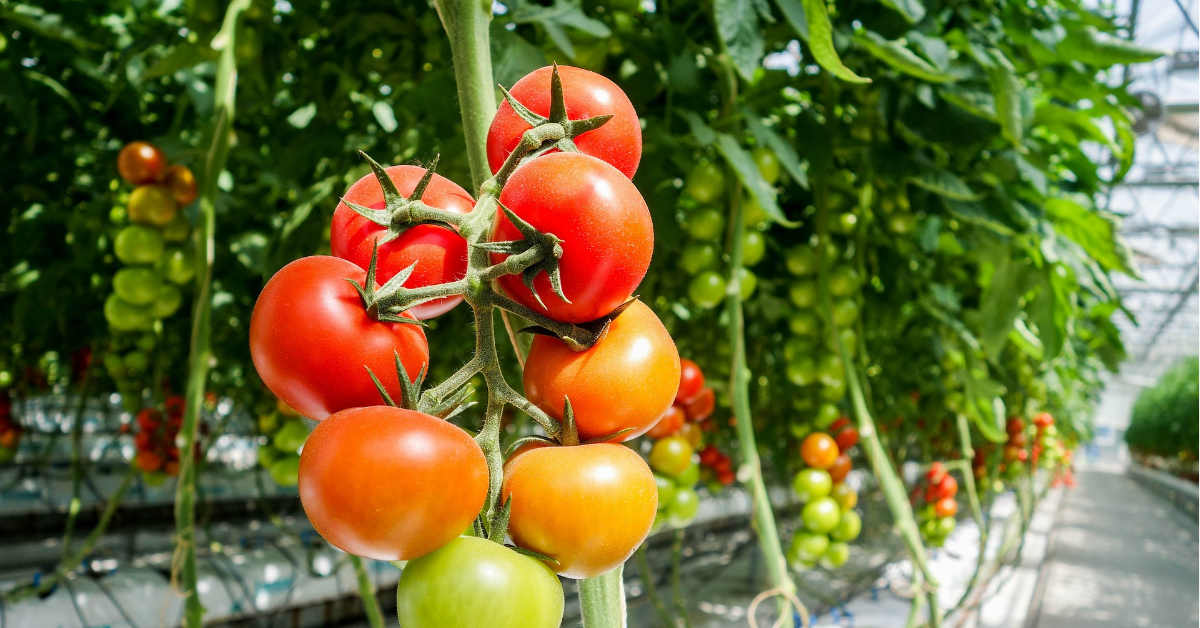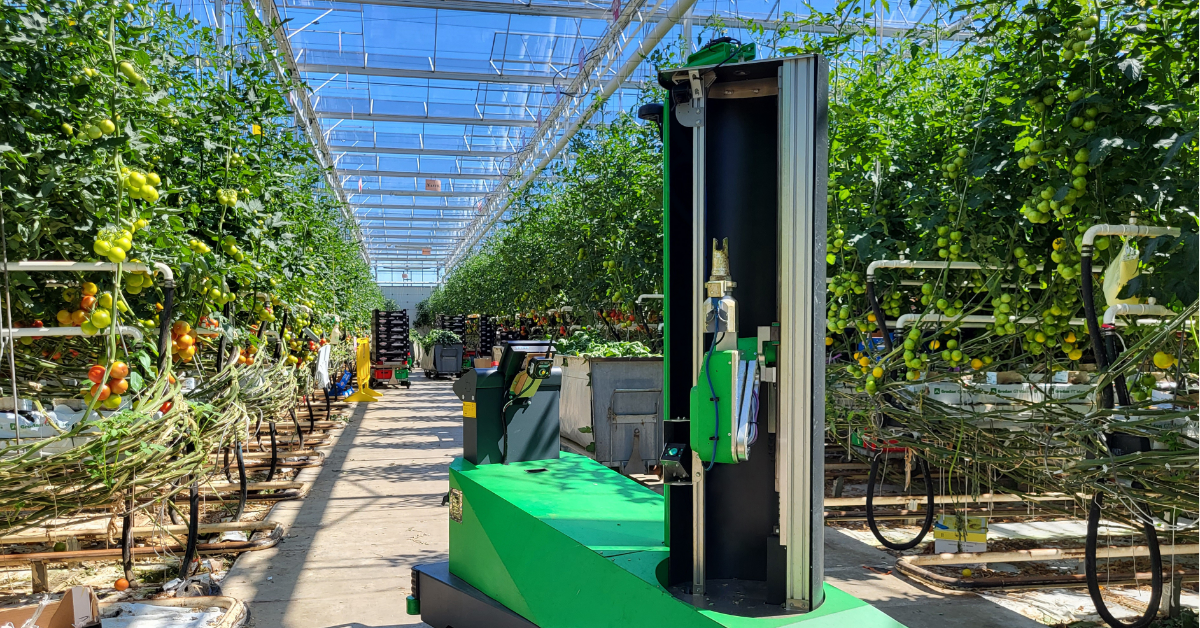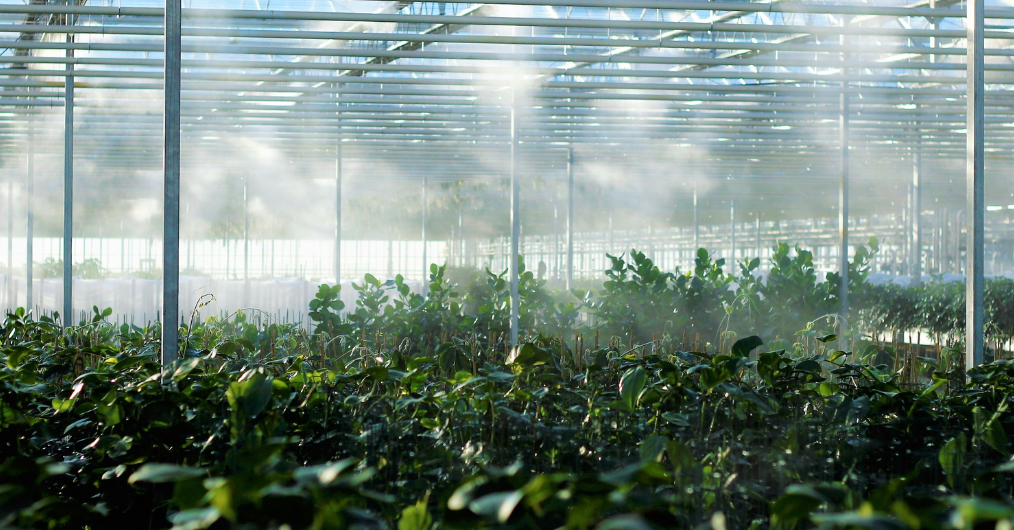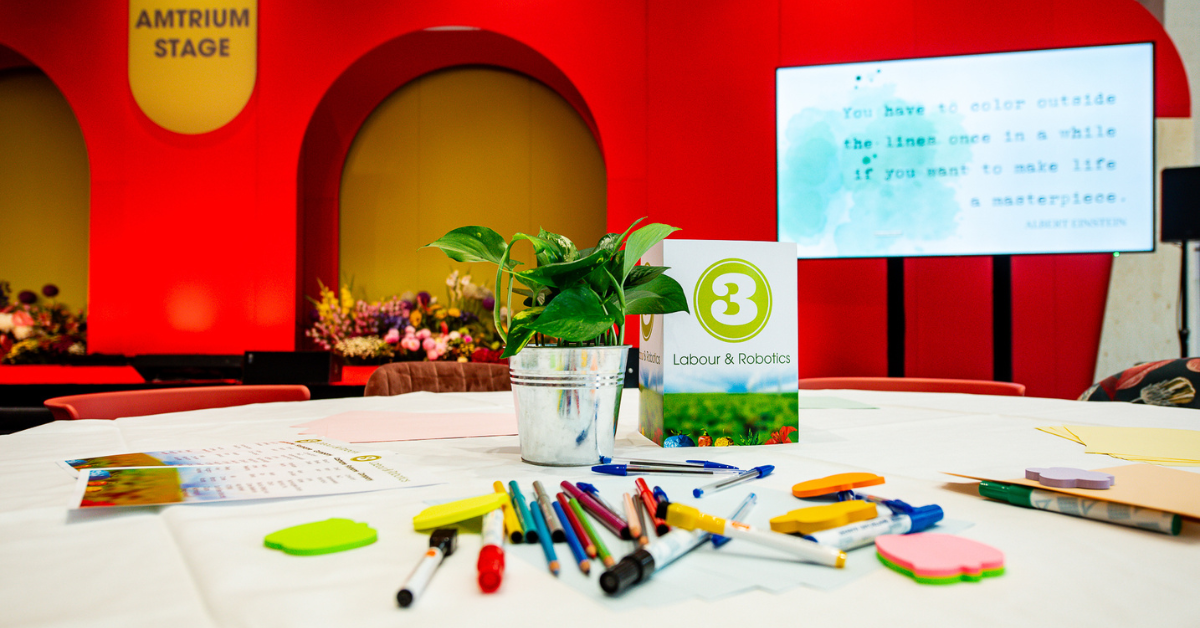Investing in horticulture: more than just money
GreenTech is shining a spotlight on the transitions happening in the world today. With numerous challenges such as climate change, water scarcity, and the need for more sustainable practices, the current food production systems are being greatly affected. In a series of articles, we will delve into the challenges and opportunities of these transitions in the horticulture industry. In this article we look at investments that are increasingly taking place in horticulture. What makes the sector so interesting for investors and how does an investor determine which product or company is interesting enough? We spoke with two different investors.
News reports about investments in horticultural companies and horticultural products have been appearing regularly lately. Startups and scale-ups, but also established companies in technology and greenhouse construction and even nurseries, are increasingly receiving funding from investors who see merit in their company or product. Such as Blue Radix, which has specialized in autonomous cultivation, or Corvus Drones, which develops drones for monitoring crops in the greenhouse. Both companies received an investment from Navus Ventures.
Food and energy
Navus Ventures is an independent family-funded Venture Capital firm, investing in startup and scaleup companies with long-term growth potential. The company emerged in 2013 as part of the Lely family office. Lely develops and produces innovative solutions for the agricultural dairy sector. “Apart from the family business, we use our background, knowledge, and skills by investing in innovative start-up companies. We focus on food and energy, where innovations in greenhouse horticulture are a main topic for us within food,” explains Investment Manager Jaap Zijlstra. “We have now made five investments in greenhouse horticulture technology and we will continue to focus on this in the coming years.”
Managing Director Eduard Meijer indicates that Navus Ventures was once set up to share the company's experience helping starting entrepreneurs bring their innovations to the market “Also, with the idea of possibly linking new developments to Lely or setting up new companies ourselves. However, in 2019 we chose to build a complete team around Navus Ventures and bring more focus. Lely has always been a top player in the field of patents and intellectual property. The company also has its own in-house patent office. We can use that very well with new investments to determine whether something is unique or not.” Navus Ventures chose not only to invest in companies with the aim of growing them in a short time and then selling them quickly. “Of course we want to make money, investing is not a hobby. But we also want to help make companies successful and make an impact in the world. We want to be able to work with companies for a longer period of time, this means investing in markets with a longer life cycle. This is how we ended up with our focus on the transition of food and energy. That development will still be going on in ten to fifteen years' time, which is why that sector suits us well.”
Add something to the company
Zijlstra: “We now have a broad network in Europe and are in contact with accelerators and incubators, with other investors and with knowledge institutions. This way we have a good overview of the developments that are taking place and entrepreneurs are becoming increasingly aware of where to find us.” Up till now, Navus Ventures has rarely approached companies herself it is usually the companies that contact us. We will then analyse such a company to build a relationship with management, determine whether the technology is interesting enough, how big the market is, how big the problem is that they solve, etc. But we also look at whether we can actively add something to that company based on our experience and network.” Because according to Meijer, investing is about more than just money at Navus Ventures. “There are different types of investors. Some only invest money and request a report every quarter. Instead, we try to be an actively involved investor. We will never sit in the entrepreneur's driver seat. But if things get exciting, you can sit in the passenger seat to help to guide the way. This support is highly appreciated by the companies we work with.”
But how do you know whether you are approaching the right investor? “That is quite difficult,” Meijer acknowledges. “Because which name comes up when you search for investors on Google? Should you choose an investor from your own country or perhaps from abroad? And we also notice that many entrepreneurs find it difficult to sit down with an investor, often fearing to lose their idea. That is why it is important to prepare yourself well and determine what your goal is and how an investment can contribute to it.” According to Zijlstra, an American investor for example can be useful if you want to expand your business in that country. “But distance can also create complexity. So, make your decision carefully and determine what best suits your strategy.”
Investment cooperative
Another company that is active as an investor in greenhouse horticulture is Horticoop. Horticoop is an investment cooperative that invests in horticultural companies that contribute to higher production with less or more sustainable use of raw materials. “We focus on technological innovations in the horticultural sector, including Controlled Environment Agriculture,” says Communications Manager David Brand. “Together with our supporter of approximately 300 Dutch and German growers, we add capital, expertise and network, with which we help our portfolio companies realize their growth and innovation plans.”
In 1904, Horticoop was founded as a purchasing organization, where the affiliated growers achieved purchasing advantages when jointly purchasing cultivation products and machines. The need for joint purchasing has gradually decreased over the years, and in 2021 it was decided to use the available capital, expertise, and network to make the horticultural sector future-proof. “We finance innovative companies in the horticultural sector through growth capital or buying out shareholders. These companies play an essential role in the primary value chain of horticulture and contribute to a sustainable and efficient sector that is able to produce enough for a growing world population,” says Brand.
40 years of experience
Horticoop distinguishes itself from other investment companies with its support of approximately 300 active and committed members in the sector in which Horticoop invests. “We only invest in companies that are active in the horticultural sector. This allows us to understand the market dynamics and the associated challenges. Our investment team has more than 40 years of experience in the horticultural sector. In addition, through our members and knowledge partners, such as Wageningen University & Research, we have access to in-depth and broad sector knowledge that helps our portfolio companies make strategic decisions.”
The horticultural sector makes a big impact worldwide, Brand indicates. “Growers make an important contribution to solving the world food problem and, with floriculture, to the well-being of millions of people. At the same time, the sector is currently facing several major challenges. Production must be done with less water, fewer pesticides, less CO2 emissions and less labour. In addition, circularity and prevention of soil and groundwater contamination are crucial to justify the sector's license to operate.” To achieve this, Horticoop invests in meaningful technological innovations. “Companies that contribute to the development of a more efficient and sustainable production system in the horticultural sector with their products, services, or technology. In collaboration with our member council, four impact themes have been selected that are important for the assessment of potential investments: reducing the ecological footprint of the sector (sustainability); more efficient use of raw materials, such as water, light and fertilizer (raw material management); improving crop specifications for higher quality, healthier and more sustainable products (crop management); and combating the labour shortage and easing the workload through the use of machines and smart systems (robotization).”
Quick scan
Before Horticoop invests in a company, the potential investment is assessed in several steps. “We use a quick scan to evaluate whether a company meets the investment criteria and contributes to one or more of the four impact themes. If the answer is 'yes', an assessment is carried out in which the expected financial return and expected impact are mapped out. We also look at how the expected impact could also make a positive contribution to the other portfolio companies, and which risk factors should be taken into account.”
After a company has passed the assessment, Horticoop monitors whether the intended return and the intended sustainable impact are being achieved. The impact is partly measured on the basis of ESG criteria and applied to continue to monitor the sustainable progress of companies. “ESG stands for 'Environment, 'Social', and 'Governance'. Horticoop focuses on reducing the ecological footprint of the sector, a safe, healthy, and inclusive working environment, and good governance and leadership. In the management phase, Horticoop supports the company in its growth plan by using targeted expertise in consultation with the company. After a number of years, we aim for an 'exit', the sale of the shares, with the desired result: a solution to a challenge in the greenhouse horticulture sector and a good financial return.”
VitalFluid, CE-Line, Vivent
Horticoop already invested into several promising companies, such as VitalFluid, which translates knowledge of plasma technology into applications of Plasma Activated Water (PAW) in agriculture and horticulture. Investments were also made in CE-Line, a high-tech company that develops unique analysis equipment to perform all laboratory analyses of irrigation and drain water directly in the greenhouse. And Vivent, which develops 'wearables for plants' to give growers better insight into the health of their crops, was added to the portfolio last year. “We are active and involved towards the participating companies. We facilitate them in successfully achieving the objectives and ensure that the required quality of management is present in the companies. Deploying our expertise is an essential part of the investment strategy.”
Share your horticulture technology stories with us
Do you have an innovation, research results or an other interesting topic you would like to share with the international horticulture technology industry? The GreenTech website and social media channels are a great platform to showcase your stories!
Please contact our Brand Marketing Manager Murkje Koopmans.
Are you an GreenTech exhibitor?
Make sure you add your latest press releases to your Company Profile in the Exhibitor Portal for free exposure.
Have exclusive horticulture technology news delivered to your inbox
The GreenTech monthly newsletter brings you the latest exclusive horticulture technology news and updates about our global horticulture technology trade shows and events.
Join over 32,000 of your peers and receive:
☑ Exclusive commentary from industry leaders
☑ The latest news from the GreenTech team
☑ Stay up to date with all the latest news about our events






